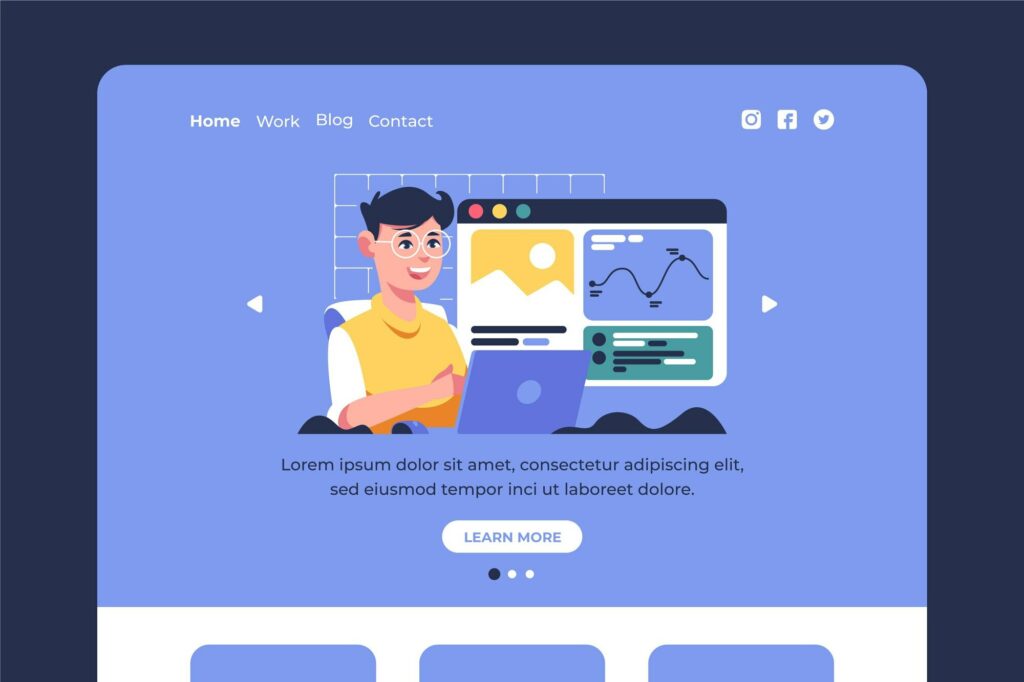The landscape of website creation has evolved dramatically in recent years, driven by the advent of powerful website builders and the introduction of AI-powered options.
This transformation raises a critical question for businesses and individuals alike: should you opt for an AI-driven approach or stick to traditional DIY website creation? Understanding the nuances between these methods is essential for making an informed decision that aligns with your needs and capabilities.

What is a DIY Website Builder?
DIY (Do-It-Yourself) website builders are platforms that enable users to create websites without needing extensive technical skills. These tools typically offer a drag-and-drop interface, making it easy for anyone to design and build a website from scratch. Key features of DIY builders include:
- Ease of Use: With user-friendly interfaces, DIY builders are accessible to beginners with no prior coding experience.
- Pre-designed Templates: They come with a variety of templates tailored to different industries and purposes, allowing users to quickly set up a professional-looking website.
- Affordability: Many DIY builders are cost-effective, offering various pricing plans to fit different budgets.
Overall, DIY website builders provide a practical solution for those looking to establish an online presence without the need for deep technical knowledge.
What is an AI Website Builder?
AI website builders leverage artificial intelligence to simplify and accelerate the website creation process. These platforms use AI algorithms to generate layouts, suggest content, and even optimize design elements based on user input. Key advantages of AI website builders include:
- Speed: AI can significantly reduce the time required to create a website by automating many design and content-related tasks.
- Minimal Technical Knowledge Required: Users can build websites without needing to understand coding or complex design principles.
- Personalized Suggestions: AI tools can analyze user preferences and provide tailored design and content recommendations, enhancing the overall user experience.
AI website builders are particularly useful for those who need a functional, aesthetically pleasing website quickly and with minimal effort.
AI vs. DIY: Choosing the Right Option
When deciding between AI and DIY website builders, several key factors should be considered. The table below compares these two options on crucial aspects:
| Factor | DIY Website Builder | AI Website Builder |
| Technical Knowledge | Minimal to moderate; basic understanding needed | Minimal; AI handles technical aspects |
| Customization Options | High; extensive customization possibilities | Moderate; limited by AI-generated templates |
| Design Control | Full control over design elements | Less control; AI optimizes design |
| Time Investment | Higher; requires more manual input | Lower; AI speeds up the creation process |
Ideal Use Cases
- Choose AI for:
- Beginners: Those new to website creation will find AI tools intuitive and easy to use.
- Quick Turnaround: If you need a website up and running fast, AI is the way to go.
- Basic Needs: For simple websites without complex requirements, AI builders provide a straightforward solution.
- Beginners: Those new to website creation will find AI tools intuitive and easy to use.
- Choose DIY for:
- More Control: If you desire greater control over the design and functionality, DIY builders are preferable.
- Unique Designs: For those aiming to create highly customized and unique websites, DIY platforms offer the necessary flexibility.
- Comfort with Code: Users who are comfortable with coding can leverage DIY builders to create more sophisticated sites.
- More Control: If you desire greater control over the design and functionality, DIY builders are preferable.
When Might You Want to Consider Both?
In certain scenarios, combining AI and DIY approaches can be highly beneficial. For example, you might use an AI website builder to quickly generate a foundational layout and basic content.
Once the initial framework is in place, you can switch to a DIY builder to customize the design and add unique features. This hybrid approach leverages the strengths of both methods:
- AI-Generated Content as a Starting Point: AI can provide a solid foundation, which you can then refine and personalize using a DIY builder.
- Enhanced Efficiency: Start with AI for speed, then switch to DIY for detailed customization, balancing efficiency with creativity.
Conclusion
The choice between AI and DIY website builders depends on your specific needs and preferences. AI builders offer speed and ease of use, making them ideal for beginners or those in need of a quick, simple solution.
DIY builders, on the other hand, provide greater control and customization options, catering to users with more specific design requirements or technical skills. Understanding these differences will help you choose the right tool for your website creation journey.
Looking ahead, the future of AI in website building is promising, with potential for even greater ease of use and more sophisticated design capabilities. As AI technology continues to evolve, it is likely to become an increasingly integral part of web development, offering powerful tools to both novice and experienced users alike.
